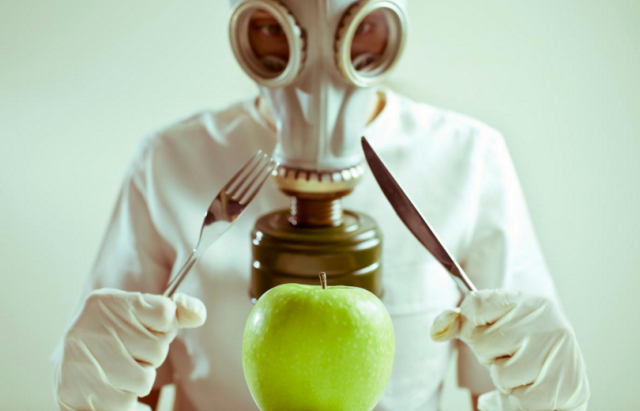As if things couldn’t get any worse, a new GMO-labeling law proposal would not only undermine state sovereignty, but would also create a loophole large enough for most GMO foods to fit through. You see, if signed into law, this proposal would dismantle state efforts, such as those in Vermont, to label GMO foods and increase transparency. In fact, the bill would prevent any state from having their own, likely more stringent, GMO legislation.
The bill, designed by two senators and lobbyists, essentially proposes that biotech products that are genetically modified with items found in nature should be exempt from GMO labelling laws. Biotech products containing genetic modifications not yet detectable by current technology would also be protected under this new proposal and could be considered “whole foods.” This exemption would apply to the vast majority of GMO products. Even foods made with non-in vitro recombinant DNA techniques would be given a free pass. It’s obvious the federal government and Big Biotech believes tomatoes engineered with tuna fish can still be considered “natural” enough for us peons to eat, anyway.
If the bill were to pass, in addition to wiping out state efforts to label GMOs, over the next two years, the USDA would increase their power and gain the ability to pass federal laws regarding the labeling of genetically modified foods. In the future, the USDA could even determine what amount of GMO presence in food requires labeling. It’s possible that upwards of 99% of GMO foods would never need a label. Isn’t that appalling?
The Center For Food Safety reports that the vast majority of American citizens want GMO foods to be labeled. A survey conducted by The New York Times in 2013 found that 93 percent of Americans favored GMO labeling. A more recent poll conducted in 2015 by The Mellman Group, Inc. found that 89% of Americans said that “they favor mandatory labels on ‘foods’ which have been genetically engineered or containing genetically engineered ingredients be labeled to indicate that.”
So, it is clear that the majority of the population supports accurate, clear labeling of our food. Why is our government not upholding this belief? People do not just want to know what’s in their food, they are demanding it. And yet, these demands fall on deaf ears.
The call for transparent food labels is of utmost importance. Food labels should not be exempt from listing potentially toxic processing agents and food manufacturers should be forced to disclose not just what goes into their food, but what goes into how they make it. The dangers of pesticides and herbicides is something that should be public knowledge. Consumers do not just have a right to know what is in their food, they have a right to understand how what is being put into our food supply can negatively impact their health.
If you want to be sure of what you’re eating, it might be time to start your own garden.
Sources:


